I have one @Entity called Team as
@Entity
@Table(name="projects_participants")
public class Team {
@Id`enter code here`
@GeneratedValue(strategy = GenerationType.AUTO)
@Column
private int id;
public int getId() {
return id;
}
public void setId(int id) {
this.id = id;
}
@Column(name="participants_id")
private int participants_id;
public int getParticipants_id() {
return participants_id;
}
public void setParticipants_id(int participants_id) {
this.participants_id = participants_id;
}
/*
@CollectionOfElements
private Set<Projects> projectsParticipant;
@ManyToMany(fetch = FetchType.LAZY,mappedBy = "team")
public Set<Projects> getProjectsParticipant() {
return projectsParticipant;
}
public void setProjectsParticipant(Set<Projects> projectsParticipant) {
this.projectsParticipant = projectsParticipant;
}
*/
}
I have another bean name Projects like
@OneToMany(fetch = FetchType.LAZY, cascade = CascadeType.ALL)
@JoinTable(name = "projects_participants", joinColumns = {
@JoinColumn(name = "project_id") },
inverseJoinColumns = { @JoinColumn(name = "participants_id",referencedColumnName="participants_id")})
public Set<Team> getTeam() {
return team;
}
public void setTeam(Set<Team> team) {
this.team = team;
}
It works fine but the problem is project_participants Table has project_id and id of Team table. But I want project_id and Participants_id of Team table. project_participants Table is as below

participants table as *

Finally What I Want is table project_participants should have project_project_id and participants_id (not team_id).Thanx in advance.